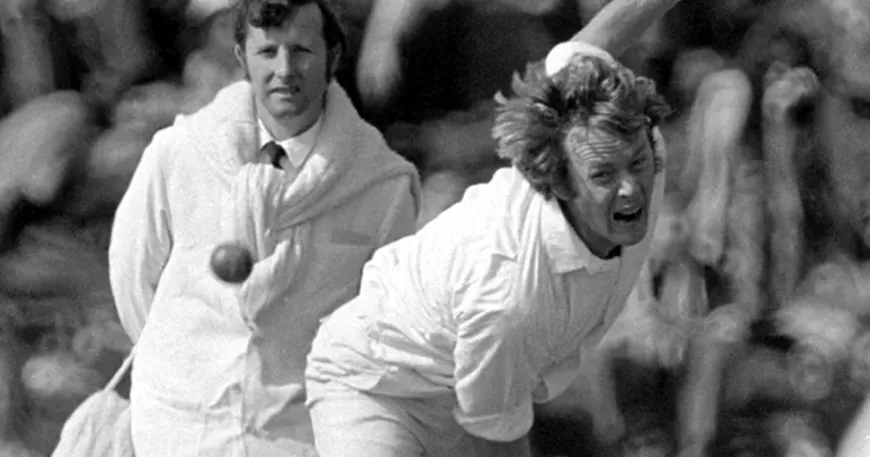Peter Lever A Much-Respected England and Lancashire Cricketer Passes Away at 84.
Peter Lever, England and Lancashire cricketer of great renown, has died at the age of 84. One of England's best fast bowlers from the 1960s and 70s, Lever has left behind a legacy that will be treasured by fans and peers alike.

Peter Lever, a veteran England and Lancashire fast bowler, died at the age of 84 following a brief illness. His contribution to English cricket was tremendous and he will always be remembered for his field skills and passion for the game. Lever played a significant role in the history of England's cricket and his performances left an indelible mark on the game.
Throughout his playing career in the 1960s and 1970s Lever was a stalwart for Lancashire claiming almost 1000 wickets in various forms. He was a regular member of the team and his consistent run of performances contributed to Lancashire's immense success. In first-class cricket alone he claimed 716 wickets demonstrating his skills as a consistent fast bowler. His work with the ball earned him a name in home cricket and his success saw him included in the England team.
Lever played for England 17 times in Test matches and 10 times in One Day Internationals. His international debut was delayed compared to most because of the stiff competition for places in England's pace attack at the time. In spite of this, he made an impact when he eventually got the opportunity. He played for Rest of the World in 1970 where he took 7 for 83 in a match where he sent legendary cricketers Graeme Pollock Garry Sobers and Clive Lloyd packing. But the games were declared not to have been Test games which meant that his success could not be used for Test purposes in records.
His first Test appearance was at the age of 30 and he soon became a vital member of the team. He was a vital bowler in the 1970-71 Ashes series when England beat Australia 2-0 to regain the Ashes. Lever picked 13 wickets in the series demonstrating his capability to deliver on the biggest stage. He was also a part of cricket history as he played in the very first One Day International that was played in Melbourne after the third Test was terminated. His performances in this era solidified his image as a dependable fast bowler.
Lever remained committed to England cricket and was chosen for the tour of Australia and New Zealand in 1974-75. But one of the worst and most memorable moments in his career came during the Auckland Test. While bowling to Ewen Chatfield he bowled a short ball that hit the New Zealand batsman on the head from the side. Chatfield fell on the field and needed instant medical care in the form of mouth-to-mouth resuscitation. It was a horrifying experience in cricket that left a lasting impression on Lever. He afterwards looked back on the incident with alarm stating he thought he had badly injured the player. Fortunately Chatfield recovered but the incident served to underline the risks that cricketers take particularly in an age before the advent of modern protective equipment.
Lever was also included in the England team for the inaugural Men's Cricket World Cup in 1975 when England played to the semi-finals. Even though he featured in just one game his inclusion in the team indicated his worth as a seasoned bowler. His international career ended in 1976 and he retired as a player with a good record at domestic as well as international levels.
Even in retirement Lever served the game when he worked as a bowling coach for England when Ray Illingworth was their captain. Having played fast bowler himself Lever was an important guide for promising young bowlers who wanted to develop their trade. His loyalty to cricket also did not escape notice and it was in 2024 when Lancashire repaid his gratitude by inducting him into the Lancashire Hall of Fame. This award was a befitting honor to a player who contributed so much to the county and the game as a whole.
Peter Lever's legacy will always be remembered by cricket enthusiasts particularly those who supported Lancashire and England during his playing years. His contributions as a player and as a coach contributed to shaping English cricket. His death is a tremendous loss to the cricket fraternity but his legacy will be felt for years to come. Players and fans alike will recall him as a diligent and committed cricketer who left everything on the field every time he played.





















































